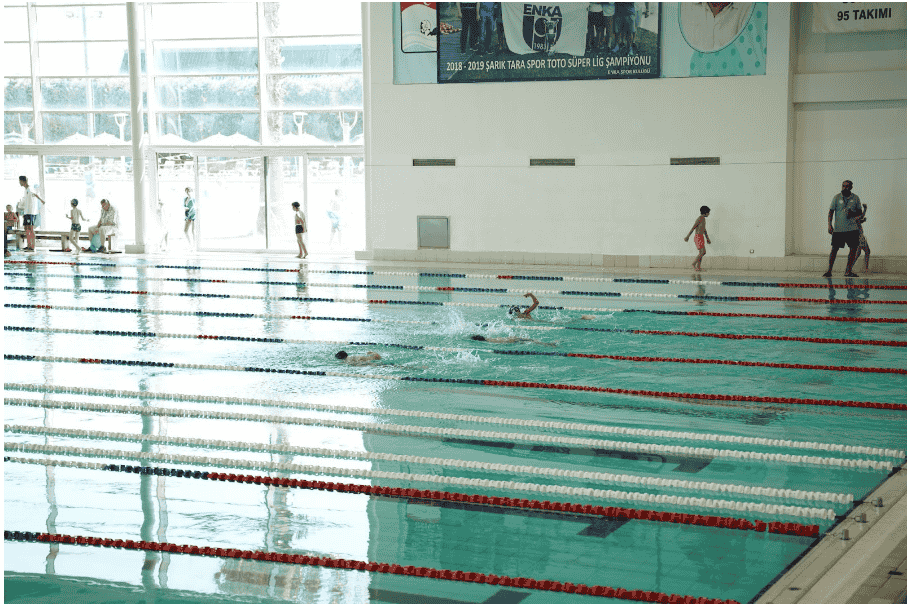Why More Malaysian Parents Are Choosing International Schools for Their Children
 Schooladvisor Team
Schooladvisor TeamIn Malaysia, parents' approach to their children's education has changed in recent years. Traditionally, many enrolled their children in local government schools, following the national education system. However, a key shift occurred in 2012 when the Malaysian Ministry of Education removed the cap on student enrollment in international schools. By 2013, this change led to a surge in the number of Malaysian students attending these schools, making them the largest group, surpassing expatriate families.
From 2019 to 2024, the number of Malaysian students enrolled in international schools surged by 34%, as reported by Education Minister Fadhlina Sidek in July. According to the Ministry of Education, as of May 31, local students comprised about 67% of the international school population, while foreign students accounted for the remaining 33%.
So, why are more Malaysian parents choosing international schools for their children? The reasons go beyond just high academic standards. The best international schools in Malaysia offer world-class facilities and a global curriculum that opens doors to prestigious universities worldwide. Parents are attracted to the opportunities these schools provide, from a rich academic environment to a multicultural experience that prepares students for the future.
If you’re considering an international school for your children but are unsure, you’re in the right place. Here are four reasons why you should consider an international school:

One of the top reasons parents enroll their children in international schools is that their children will be taught by expert teachers familiar with the foreign curriculum.
1. Personalised Learning with Expat Teachers
Today, parents place immense importance on their children's education, and they value the presence of exceptional expat teachers in international schools. These educators, often from the UK, US, and Australia, bring a wealth of experience, prestigious qualifications, and expertise in specialised subjects.
International schools offer an environment that encourages greater autonomy and flexibility for students. Teachers employ innovative methods, going beyond textbooks to incorporate props and interactive activities that engage students in learning. These fun activities not only make lessons enjoyable but also help students develop empathy, enabling them to understand different perspectives — a crucial skill in navigating both academic challenges and real-life situations.
Jynice Ong, an alumnus of Sunway International School (SIS), experienced this firsthand. "At SIS, the teachers were not only friendly but also incredibly encouraging," she says. "They fostered an environment where they clarified that ‘there are no silly questions’ and that every opinion mattered."
This inclusive atmosphere sparked her love for learning, making every class an opportunity to explore and understand new ideas.
What’s more, students enjoy exciting learning experiences that go beyond their usual routines. Smaller class sizes allow for more personalised attention, with teachers closely monitoring each student’s progress. Just ask Reia Peterson Koay, a Garden International School (GIS) alumni.
"I remember my Year 6 teacher, Mr. Thurman, and secondary school tutor, Mr Vinales, being very in tune with his students," she says. "They would frequently check in with you, and when they notice changes in your behaviour, they do not hesitate to ask if you are alright.”
Through project-based assessments and skill demonstrations, these schools allow students to apply their knowledge in real-world contexts. Teachers quickly intervene when needed, offering extra help to struggling students while challenging those who excel.

Many international schools in Malaysia offer diverse extracurricular activities (ECAs), including sports, performing arts, and hobbies.
2. Transforming Education for the Whole Person
In Malaysia, public schools often prioritise rote learning and high exam scores. However, an increasing number of parents recognise the value of cultivating critical thinking, goal setting, reflection, and core values in their children’s education.
This realisation has led many to opt for international schools emphasising holistic development. These schools offer a well-rounded education complemented by structured co-curricular activities, enabling students to engage in hands-on and experiential learning.
International schools provide an environment where students can explore their passions while developing altruistic qualities through community involvement. Extracurricular activities are pivotal in this growth, teaching students time management, leadership, and sportsmanship. Such experiences foster essential qualities like confidence, resilience, and organisational skills — traits that Arushee Puri, a Global Indian International School (GIIS) alumna, can attest to.
“I didn’t realise their purpose then, but it helped to build an all-rounder," she says. "I am proud to say that I am now skilled in taekwondo, chess, yoga, and drama. These are things that people in another school usually pursue outside of their school by taking additional classes, but imagine being able to get a free taekwondo lesson each week and a chance to get certified at a young age."
Some international schools take experiential learning further by offering internship programmes to prepare students for the real world. For instance, GIS’s THRIVE internship programme allows Year 12 students to gain industry experience.
Gauri Gupta, a GIS alumna now studying Mathematics at the University of Cambridge, says, “The THRIVE internship gave me a new perspective on what it was like working in the financial industry and an idea of what I may want to pursue as a career. I was also able to see how mathematical, particularly statistical, concepts are used in these fields, motivating me to learn more about them.”
By integrating academics, extracurriculars, and real-world exposure, international schools equip students to excel in life and future careers.

International schools leverage technology to create authentic learning experiences and innovate teaching methods.
3. Preparing Students for an AI-Driven Future
As artificial intelligence (AI) advances and technologies like ChatGPT become part of everyday life, it’s more important than ever for students to learn about AI from a young age. While AI brings innovation and progress, its impact on the workforce and human interaction with technology cannot be ignored.
A report by McKinsey and Company predicts that by 2030, AI and automation could displace 4.5 million jobs in Malaysia and up to 800 million globally. Yet, the same report forecasts the creation of six million new jobs in Malaysia during this time, highlighting the need for a workforce equipped with digital skills to adapt to a rapidly evolving technology landscape.
To prepare students for this reality, skills like programming, robotics, and application development are becoming essential. International schools such as GIS and Nexus International School Malaysia are Apple Distinguished Schools, meaning students use Apple technology to learn and collaborate. This approach encourages creativity and helps students understand AI’s practical applications.
By embracing emerging tools and digital trends, international schools aim to teach students not only how to adapt but also how to harness technology to their advantage. This preparation gives students the confidence to navigate a technology-driven world and stand out in an increasingly competitive environment.

International schools provide a rigorous academic curriculum that is recognised and respected by universities globally.
4. Getting Students Ready for a Global Future
In today’s competitive job market, having a well-rounded education is more crucial than ever. While achieving excellent grades and attending prestigious universities is impressive, international schools go beyond academics, demanding more from their students to prepare them for a globalised future.
An international education not only builds academic knowledge but also nurtures global citizenship. By immersing students in diverse perspectives, cultures, and experiences, these schools equip young learners with the skills and understanding needed to excel in our interconnected world. Critical thinking, adaptability, and cross-cultural communication are just a few 21st-century competencies that international school students develop.
While the cost of international education can be significant, the benefits are undeniable. For Malaysian parents, choosing an international school is an investment in their child’s future. It opens doors to unique opportunities, from gaining a deeper appreciation of global issues to building a strong foundation for thriving in the global job market.
Take Nicholas Choo, a graduate of HELP International School, for example. After completing his studies at UCL School of Management, he works as a Reputation, Risk, Crisis & Resilience Consultant at Deloitte in London, UK.
Nicholas appreciates how international schools in Malaysia offer a refreshing approach to education, prioritising self-expression and critical thinking over rote memorisation. He advises parents to carefully weigh factors like location, curriculum, and student-teacher ratios when selecting a school.
“I understand that parents have expectations for their kids, but I believe that a balance should be struck to create a safe space for kids to learn in a way that is best suited for them. I think an international school does this well.”
By prioritising international education, parents can prepare their children to confidently meet the challenges and seize the opportunities of a rapidly evolving world.

